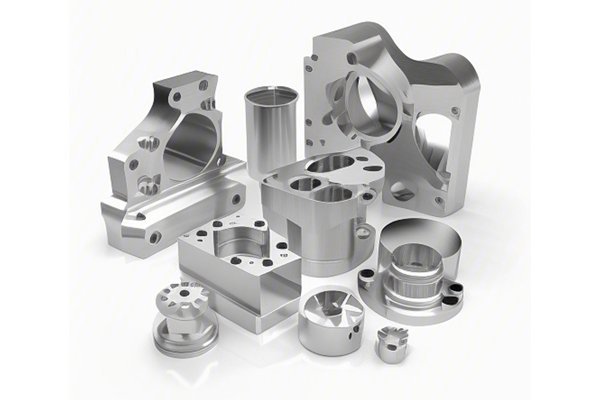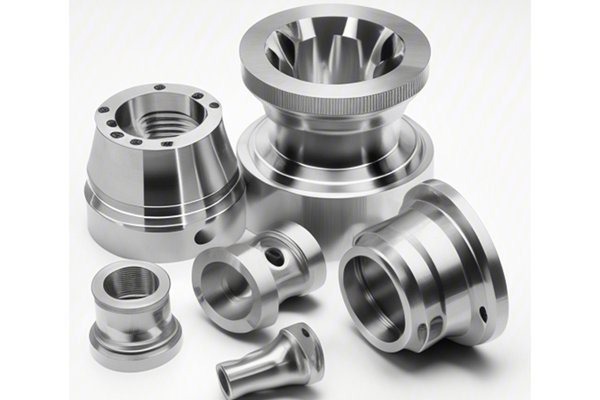Did you know that the global CNC machining market is projected to reach a staggering USD 79.32 billion by 2028? As industries evolve and demand for precise parts increases, CNC machining has emerged as a leading technology across various sectors, particularly for custom plastic parts. But what is it about CNC machining that makes it indispensable for manufacturers? This comprehensive guide will delve into the extraordinary benefits of CNC machining services for custom plastic parts, exploring the technology’s intricacies, its advantages, and how it addresses various challenges in manufacturing.
—
The Rise of CNC Machining: Understanding the Basics
CNC (Computer Numerical Control) machining is an automated manufacturing process that utilizes computer software to control machine tools. Commonly used machines include lathes, mills, routers, and grinders. CNC machining can handle a variety of materials, including metals, wood, and, importantly, plastics.
The Importance of Custom Plastic Parts
Custom plastic parts are critical components in numerous industries, from aerospace to healthcare. Their lightweight nature, resistance to corrosion, and versatility make plastics an ideal choice for countless applications. Yet, producing these parts with precise specifications and quality is often challenging. This is where CNC machining shines, offering efficient and high-quality solutions tailored to specific needs.
—
Advantages of CNC Machining for Custom Plastic Parts
One of the standout features of CNC machining is its ability to create complex shapes and intricate designs with unparalleled precision. The process allows manufacturers to achieve tolerances as tight as ±0.005 inches, making it ideal for tight-fitting components.
Example: In the automotive industry, where even minute dimensional variations can lead to significant performance issues, CNC machining ensures that every plastic part meets exact specifications.
CNC machining can easily adapt to different production volumes without sacrificing quality or efficiency. Whether you need a single prototype or thousands of units, CNC machining services can handle both requirements seamlessly.
Example: Companies can prototype new plastic parts to test functionality before mass production, significantly shortening their product development cycle.
While initial investments in CNC machinery can be substantial, economies of scale make CNC machining a cost-effective solution in the long run. As production volumes increase, the cost per part decreases, making it economically viable for both small and large manufacturers.
Statistical Insight: A report from the National Association of Manufacturers indicates that CNC machines can reduce production costs by approximately 30-50% over traditional methods.
CNC machining is compatible with a wide range of engineering-grade plastics, including ABS, nylon, polypropylene, and polycarbonate. Manufacturers can select materials based on specific application requirements, such as strength, heat resistance, or chemical compatibility.
Example: In electronics, polycarbonate is often chosen for its high impact resistance and clarity, allowing for bezels and protective covers that withstand harsh environments.
CNC machining accelerates the prototyping phase by reducing lead times significantly. The software-driven nature of CNC allows for quick modifications to designs, which can be iterated and tested repeatedly.
Benefit: Companies can refine their designs more swiftly, enabling faster go-to-market strategies and keeping them competitive in their respective industries.
CNC machining can produce superior surface finishes that enhance aesthetic appeal and functional performance. Various post-processing techniques, such as polishing or anodizing, can further improve the end product’s quality.
Example: For applications in consumer electronics, where a sleek and polished finish enhances product desirability, CNC machining provides an ideal solution.
—
Challenges Addressed by CNC Machining
Modern products often require intricate designs that traditional manufacturing processes struggle to achieve. With CNC machining, designs can be as complex as needed, incorporating features like undercuts or detailed engraving without additional tooling.
Quality assurance is critical in manufacturing, and CNC machining significantly reduces human error. Each part is produced based on precise computer instructions, ensuring consistency across the production run.
Long lead times can hinder product launches and customer satisfaction. CNC machining cuts down on the time required to create both prototypes and production-ready parts, quickly responding to market demands.

Traditional manufacturing processes often result in a significant amount of material waste. CNC machining offers a more efficient material usage, as it operates based on precise measurements, minimizing scrap.
—
The CNC Machining Process Explained
Initial Consultation and Design Phase
Successful CNC machining begins with a detailed consultation, where engineers discuss project requirements and design specifications with clients. 3D modeling software is typically employed to create a digital representation of the part.
Material Selection
Choosing the right plastic material is paramount. Engineers must take into account factors such as tensile strength, flexibility, and chemical resistance to select the best material for the intended application.
Machining Systems
Once the design is finalized, the specific CNC system needed to manufacture the part is selected. This may involve choosing between milling, turning, or other processes depending on the part’s geometry.
Prototype Production
A prototype is usually created first, allowing for testing and adjustments. This stage is vital in ensuring that any bugs are ironed out before mass production begins.
Full Production Run
After successful prototyping, manufacturing can commence, producing items to meet the specified quantity and quality requirements.
Quality Assurance
Throughout the manufacturing process, quality control measures are implemented. This may include inspection of dimensions, surface finish, and functionality tests to ensure that parts meet the client’s criteria.
—
Industry Applications of CNC Machining for Custom Plastic Parts
In aerospace, weight is a critical factor influencing performance and safety. CNC machined plastic parts are increasingly used in aircraft and drones for components like housings and internal structures, offering a combination of lightweight durability and design flexibility.
Medical devices require stringent adherence to specifications due to their critical nature. CNC machining provides the precision required for components like connectors and housings, ensuring safe and effective medical equipment.
From dashboards to under-the-hood components, the automotive sector relies heavily on custom plastic parts. CNC machining supports the rapid production of parts that can withstand both heat and vibration, enhancing vehicle performance and reliability.
CNC machining is ubiquitous in the production of consumer electronics. Cases, connectors, and interface panels all benefit from the precision and customization made possible through CNC technologies.
—
: The Future of CNC Machining for Custom Plastic Parts
As we explore the myriad benefits of CNC machining services for custom plastic parts, it is clear that this technology is an indispensable element of modern manufacturing. With advantages ranging from precision and scalability to rapid prototyping and material versatility, CNC machining addresses many challenges faced by manufacturing industries today.
In a world where consumer demand for unique, high-quality products is ever-growing, embracing CNC machining not only fosters innovation but also enhances efficiency and competitiveness in the market. For companies looking to streamline their production processes and meet the increasing demands of their customers, CNC machining is definitely worth consideration.
By paying attention to the details in CNC machining processes, manufacturers can significantly improve product quality, reduce lead times, and ultimately boost customer satisfaction. As you reflect on the role of CNC machining in your operations, consider the opportunities it presents and how it could transform your approach to manufacturing complex plastic components.
—
This blog provides a thorough exploration of the topic and highlights why CNC machining is a pivotal technology for producing custom plastic parts. It helps readers understand the potential applications, benefits, and the significance of investing in CNC machining for their production needs.






